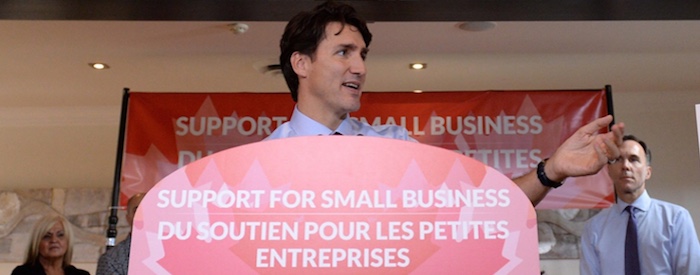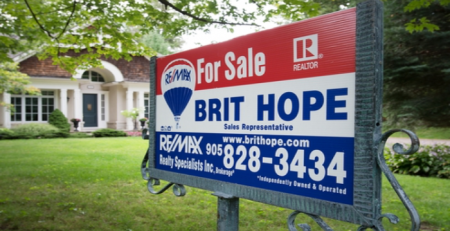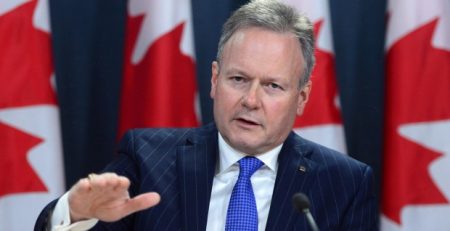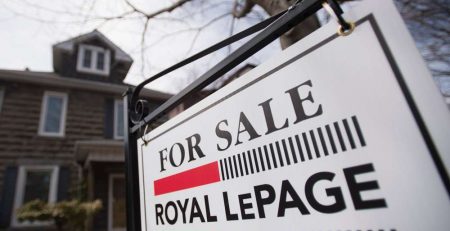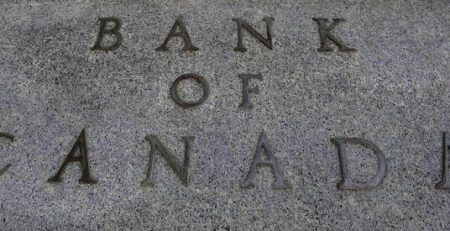Government lowering small business tax rate to 9% over two years
[Source: CTV News, October 16, 2017]
OTTAWA – The federal government is reducing the small business tax rate from 10.5% to 9%, to be phased in over two years, as it begins to unveil changes to its contentious tax reform proposal.
The small business tax rate will drop to 10%, effective Jan. 1, 2018, and then to 9% effective Jan. 1, 2019.
The rate reduction comes alongside other tweaks to the Liberal proposal to cut tax loopholes for businesses.
The government is going forward with limits on income sprinkling—where business owners can split their income among family members and lower their income tax rate by paying them salaries, wages or dividends—with the exception of business owners who can prove that they are splitting their income with family members who “meaningfully contribute” to the business.
It will not be moving forward with the proposed measure to limit access to the Lifetime Capital Gains Exemption. This is a tax exemption on capital gains—profits earned from the sale of securities, stocks, or property above the purchase price— and was one of the areas of change that particularly concerned farmers and fishers.
The government says the changes are meant to “simplify” the proposal, but are still aimed at making sure tax loopholes aren’t used to the advantage of the wealthy.
“Canada is a country where we celebrate our collective contributions rather than protect the interests of a privileged few,” said Prime Minister Justin Trudeau Monday, as he made the announcement, alongside Finance Minister Bill Morneau and Small Business and Tourism Minister Bardish Chagger, at an eatery in Stouffville, Ont.
The changes come after the government got considerable pushback — from business owners including doctors and farmers; the opposition parties; as well as Liberal MPs – all of whom raised concerns that the changes would negatively impact middle-class small business owners, and not the wealthy demographic the government intended to target.
Over five years, the government expects the combined impact of the changes announced Monday will be a $2.9 billion tax cut.
Tax rate reduction
In the 2016 federal budget Morneau froze the small business tax rate at 10.5%, stopping the legislated change to nine per cent that was set by the previous Conservative government. The move was criticized at the time, in light of the Liberal campaign promise to reduce it to nine per cent over three years. When they came to power, the small business tax rate was at 11%.
The tax rate applies to the first $500,000 of active business income. The government says this change will amount in $7,500 more a year left in the pockets of small business owners.
Monday, Morneau said the wait on lowering the tax rate was because the government wanted to evaluate the current tax system to make sure lowering the rate wouldn’t give people who are already financially successful an unfair advantage over middle-class Canadians.
More tweaks coming
Additional tweaks are expected to be announced this week, at events throughout the country.
The changes, as they were first proposed in July, also targeted passive investment. It’s expected that provision will be changed in some way as well.
Passive investment refers to income derived from a portfolio of investments, as opposed to active income earned from running a business.
The consultation window on the changes ended on Oct. 2, and the government has signaled the changes coming are a result of the feedback they heard and would insure that female entrepreneurs are not disproportionally impacted and are able to save for things like parental leave; that farmers won’t face new challenges in passing on the business to their children; and that the changes aim to support entrepreneurs investing in their businesses.
“By fixing flaws in the system we know that we can benefit all Canadians, part of that means moving forward on a simplified proposal,” said Morneau.
Changes a result of backlash: Scheer
Conservative Leader Andrew Scheer said the federal government’s announcement on Monday was a direct result of the cross-country backlash and outrage the proposal spurred.
He said the Liberal decision to schedule the small business tax rate to return to 9 per cent as the Conservatives had legislated when in government, was about managing the political crisis that the tax reform proposal became.
“The prime minister only made this announcement today because local business operators are speaking out in opposition to his tax grab, and if we let our guard down he will raise the small business tax rate again,” Scheer said.
NDP Leader Jagmeet Singh also attributed the coming tax changes to the backlash the Liberals have incurred, and criticized the government for not bringing in more comprehensive tax reform.
“We look at the government’s priorities, instead of actually targeting CEO stock options or tax havens, they went after small businesses, people that it didn’t make sense for them to target, and they did it in a way that wasn’t sophisticated,” said Singh in an interview with Don Martin, host of CTV’s Power Play.
“Now, the reality is, is that people have seen that their priorities aren’t clear, that they just don’t get how to make the system more fair, and now that people have raised this concern, they’re scrambling to try to fix it,” he said.
Green Party Leader Elizabeth May said that while Monday’s announcement is an improvement to the “catch-all proposals that threatened small businesses” the government has further to go if it wants full tax fairness, suggesting they look at raising the corporate tax rate.
Liberal MPs relieved
Morneau briefed the Liberal caucus on the changes at a special Monday morning meeting on Parliament Hill, before travelling to the GTA to make the announcement.
Following the meeting, Liberal MPs said they were pleased by what they heard from the finance minister.
Wayne Long, the Liberal backbencher who was removed from committees after voting against the government on an opposition motion to extend the consultations on the changes, said Monday he’s relieved to hear the proposal is being amended.
“It hasn’t been an easy couple months I think, for certainly myself and a lot of my colleagues, but I have an air of optimism that I haven’t had in a long time. I think things are going to work out.”
“Clearly the consultation with caucus and with the general public—the minister has listened and the department has listened, and we are going to move forward with the whole issue of tax fairness for everybody,” said Liberal MP Judy Sgro. She was one of a handful of other Liberal MPs, who on their way into the meeting told reporters they were hoping to get clarity around where the policy is headed, and to learn who the revised proposal will impact.

